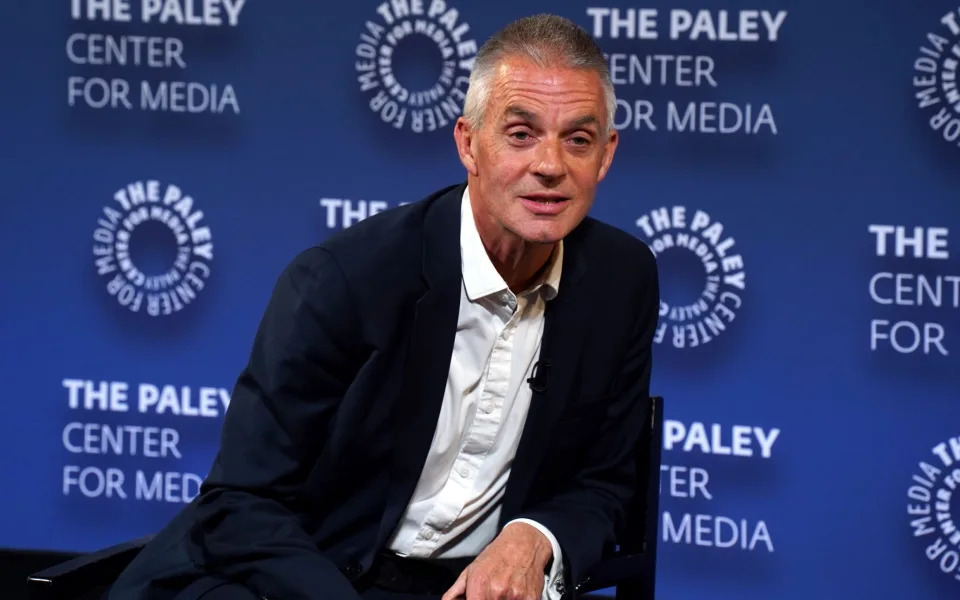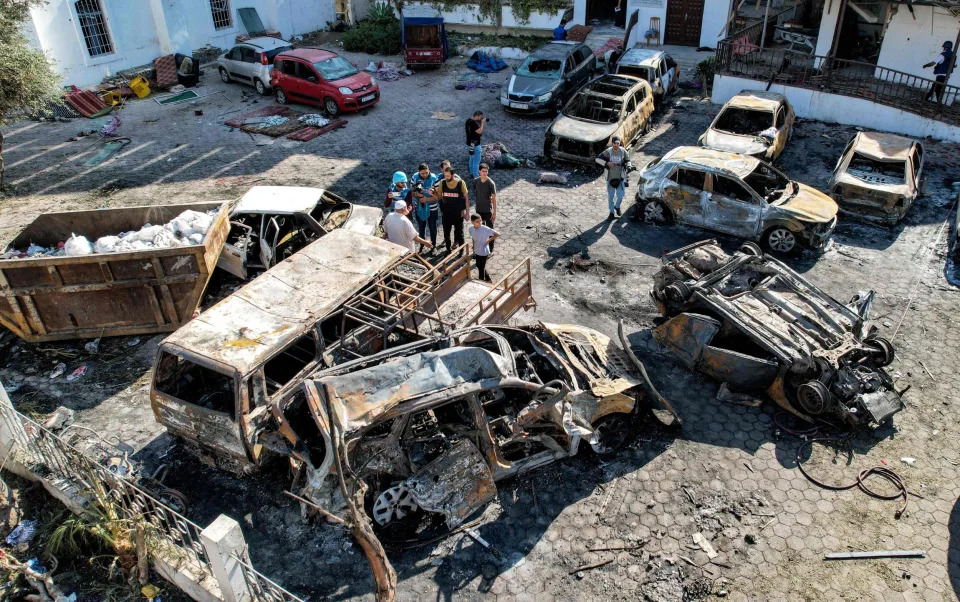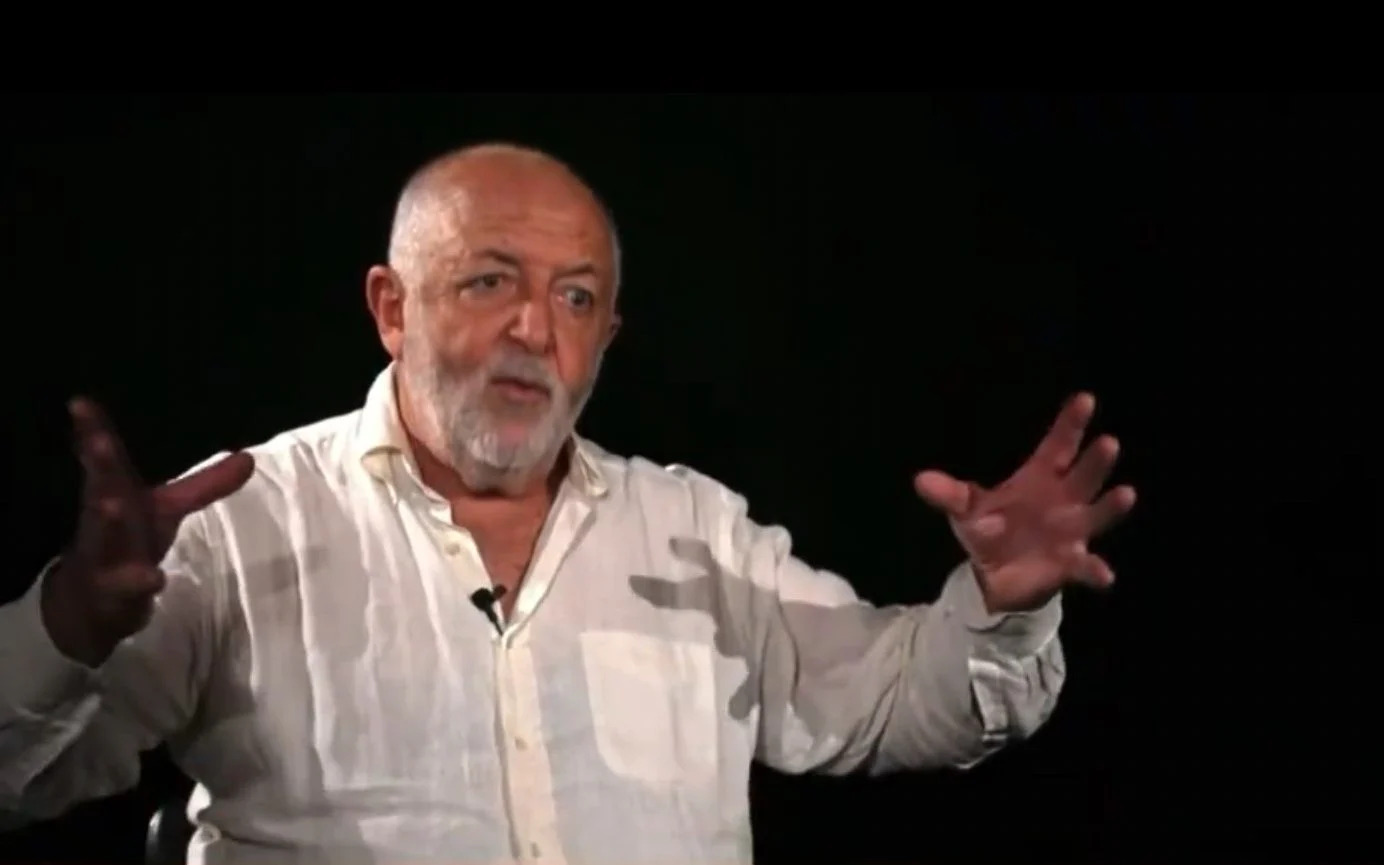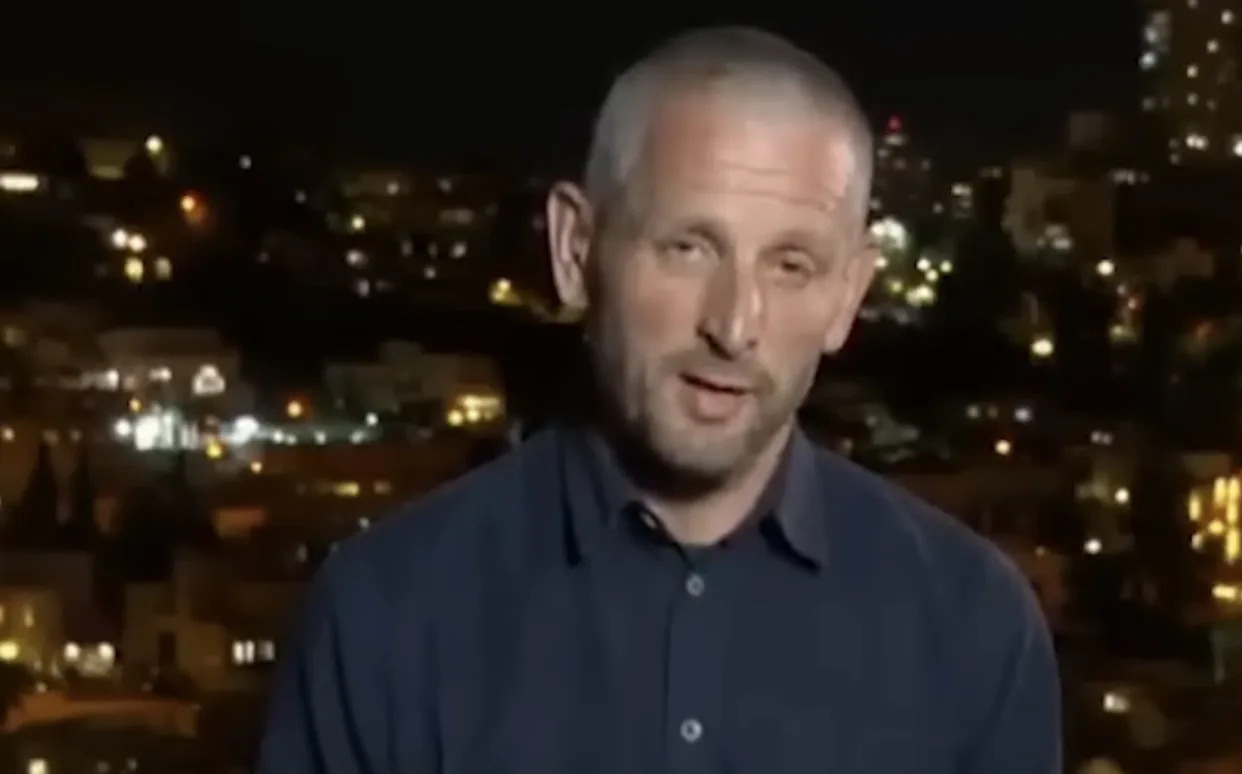BBC international editor Jeremy Bowen has admitted his coverage of the alleged bombing of a hospital in Gaza was “wrong” but still said he “doesn’t regret one thing” about his reporting.
Jeremy Bowen told Behind the Stories he was 'measured throughout' and 'didn’t race to judgement' - BBC
Speaking in a television interview, the veteran reporter said he was incorrect to have suggested Al-Ahli hospital “was flattened” in an explosion on October 17.
Stories on the blast were a key flashpoint in controversy over the reporting on the war between Israel and Hamas. They formed part of a series of programmes which demonstrate BBC News’ commitment to transparency.
In an item on BBC One’s News at Ten hours after the first reports of an explosion, Mr Bowen said: “The missile hit the hospital not long after dark. You can hear the impact.
“The explosion destroyed Al-Ahli hospital. It was already damaged from a smaller attack at the weekend. The building was flattened.”
No 10 agreed with Israeli version
The Israeli Defence Forces (IDF) claimed the blast was caused by a misfired rocket from the Palestinian Islamic Jihad group and released imagery and communications intercepts to support their case. Hamas claimed an Israeli airstrike led to the blast, which was said to have killed at least 500 people. The British government later concluded the Israeli version of events was more likely to be correct.
It later emerged that the hospital building was intact and any explosion had centred on the car park, claiming far fewer casualties than the first accounts of 500 dead. The Anglican diocese that manages the hospital reported 200 people had died after the blast.
News of the incident disrupted US president Joe Biden’s visit to the Middle East, with the cancellation of a summit in Jordan where he had been due to meet Arab leaders.
In the following 48 hours, a synagogue in the central Tunisian city of Al-Hammah was set on fire during mass rioting while two Molotov cocktails were thrown at a synagogue in central Berlin.
Asked about the report in an interview on Behind The Stories on the BBC News channel on Saturday, Mr Bowen said: “So it broke in, I suppose, mid-evening and to answer your question, no, I don’t regret one thing in my reporting because I think I was measured throughout. I didn’t race to judgement.”
Pressed further about saying the hospital had been “flattened”, he said: “Oh yeah, well I got that wrong because I was looking at the pictures and what I could see was a square that appeared to be flaming on all sides and there was, sort of, a void in the middle. I think it was a picture taken from a drone.
“So, you know, we have to piece together what we see and I thought, ‘It looks like the whole building has gone’.
“That was my conclusion from looking at the pictures and I was wrong on that, but I don’t feel particularly bad about that. It was just the conclusion I drew.”
Mr Bowen said sometimes the corporation had to “rely on things people say” as well as looking “at the multiplicity of videos” that are released before making a judgement on what to report.
In the first story about the hospital on the BBC on October 17, correspondent Jon Donnison suggested Israel was behind the blast. Speaking shortly after 8pm on BBC News, he said: “It’s hard to see what else this could be, really, given the size of the explosion, other than an Israeli airstrike or several airstrikes.”
First BBC reports prompted complaints
Mr Donnison’s comments prompted the Board of Deputies of British Jews and the Campaign Against Antisemitism (CAA) to complain to the corporation.
Tim Davie, the director-general of the BBC, referred the complaints to the corporation’s executive complaints unit (ECU), which considered them in light of their “editorial standards of accuracy and impartiality”.
However, the ECU ruled that Mr Donnison had not offered a “definitive judgement” but accepted that it was “not consistent with the BBC’s standards of due accuracy to offer any view about responsibility for the incident at a point where so little reliable information was available”.
Hadar Sela, co-editor of CAMERA UK, told The Telegraph: “Anyone who was under the impression that the BBC had learned any lessons from its hasty assignment of blame to Israel for the explosion at the Al-Ahli hospital on October 17th will understand from Jeremy Bowen’s statements that they were sadly wrong.
“Bowen’s arrogant declaration that he ‘doesn’t regret one thing’ about his misreporting the hospital building as ‘flattened’ and his claim that he ‘didn’t rush to judgement’ even though he amplified unverified claims from third parties is sad testimony to the standard of BBC journalism on display throughout this conflict.”
BBC rejects complaints about reporting of Israel-Hamas war.
One complaint related to a report by Jon Donnison, a BBC correspondent in Jerusalem, that suggested an air strike at Al-Ahli hospital was by the Israeli military.
The BBC has not upheld a number of complaints raised about its reporting of the Israel-Hamas war following an investigation.
Concerns about a report on Oct 17 in relation to the blast at Al-Ahli hospital as well as other news bulletins were raised by the law firm Mishcon de Reya on behalf of the Board of Deputies of British Jews and the Campaign Against Antisemitism (CAA).
Tim Davie, the director-general of the BBC, referred the complaints to the corporation’s executive complaints unit (ECU), which considered them in light of their “editorial standards of accuracy and impartiality”.
It comes as BBC employees have reportedly been banned from attending a march against anti-Semitism on Sunday.
Both organisations complained that the BBC news show The Context “wrongly attributed” the air strike at Al-Ahli hospital to the Israeli military, which Israel has suggested was caused by a rocket misfired by Palestinian militants.

During the show, Jon Donnison, a BBC correspondent reporting from Jerusalem, said: “Now the Israeli Defense Forces, the Israeli military, have been contacted for comment and they have said that they are investigating.
“But, you know, it’s hard to see what else this could be, really, given the size of the explosion, other than an Israeli airstrike or several air strikes, because, you know, when we’ve seen rockets being fired out of Gaza, we never see explosions of that scale.”
The ECU stated that the complaint has been “resolved” because it judged that Mr Donnison had made it clear to viewers that the Israeli military had not made any “substantive comment”, and although he had stated there was a “strong probability of Israeli involvement”, it deemed that he had not offered a “definitive judgment”.
However, it accepted that it was “not consistent with the BBC’s standards of due accuracy to offer any view about responsibility for the incident at a point where so little reliable information was available”.
The complaints unit noted that BBC News had posted a statement on their corrections and clarifications page stating that Mr Donnison was “wrong to speculate” on the causes of the blast and an apology was added to the statement when the latest ruling was published.
The CAA also complained about a tweet, push notification and post in relation to the reporting of the events of Oct 17.
The ECU did not uphold the complaints about inaccuracy in the report as it referred to BBC Verify’s coverage and stated that “the BBC cannot yet establish as fact who was responsible for the blast”.

Another complaint that was not upheld questioned the BBC’s impartiality in relation to the broadcaster not using the term “terrorist” in relation to Hamas.
The Board of Deputies argued that use of “terms as ‘bomber’, ‘attacker’, ‘gunman’, ‘kidnapper’, ‘insurgent’ and ‘militant’ fell short” because they did not “convey the full horror” of Hamas’s actions on Oct 7.
The ECU accepted that none of these terms on their own conveyed the full horror of the actions but added that there was “room for doubt” that even the word “terrorist” did this.
It added that it was the reporting of Hamas’s actions, rather than the terminology, “that was the test of whether justice has been done to the events”.
A BBC spokesperson said: “The BBC is clear that anti-Semitism is abhorrent.
“We have established guidance around marches, which explains that different considerations apply depending on what you do for the BBC.
“Corporately, we have not issued any staff communication on any specific march this weekend, but this does not mean discussions which consider the guidance have not taken place between colleagues.”




